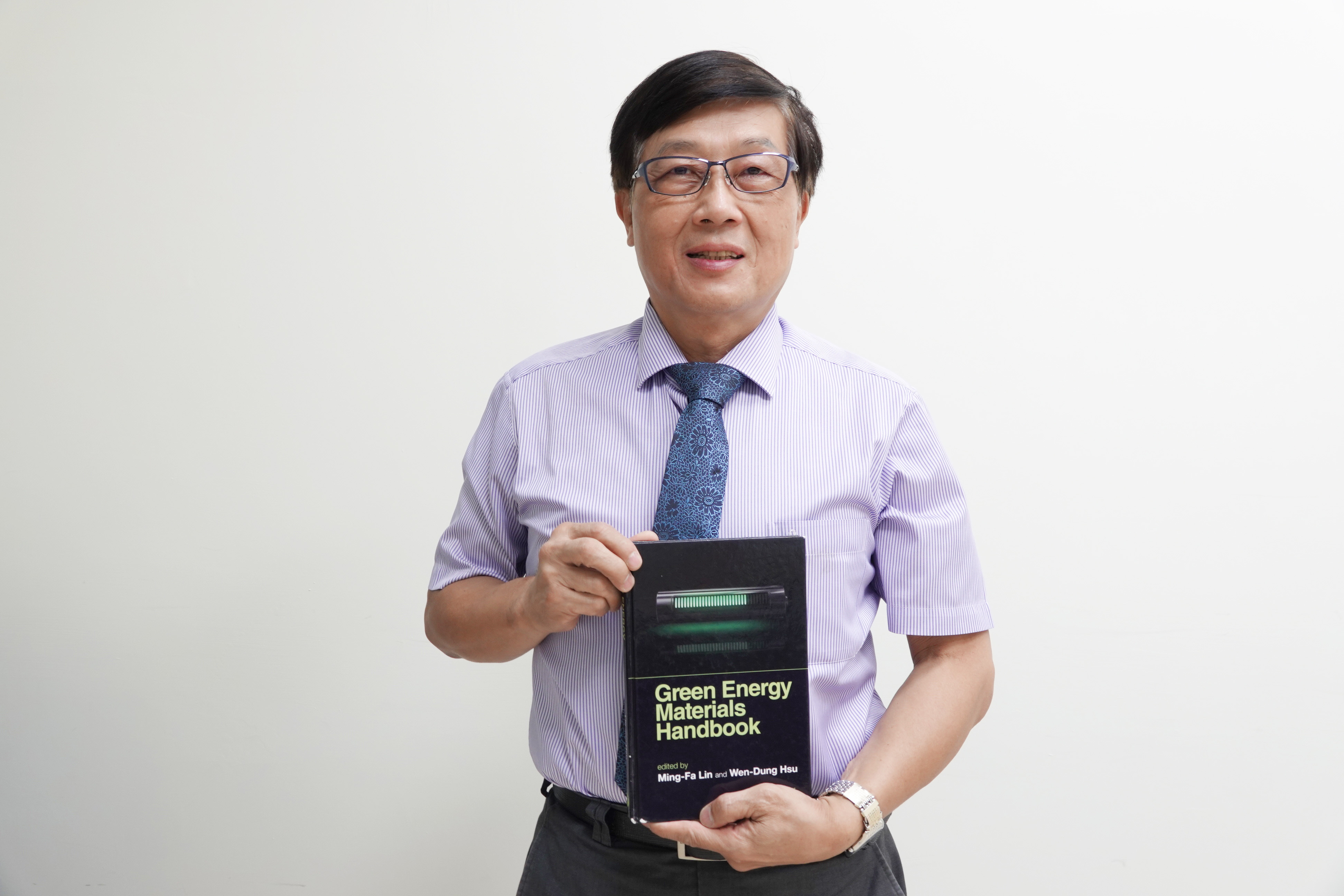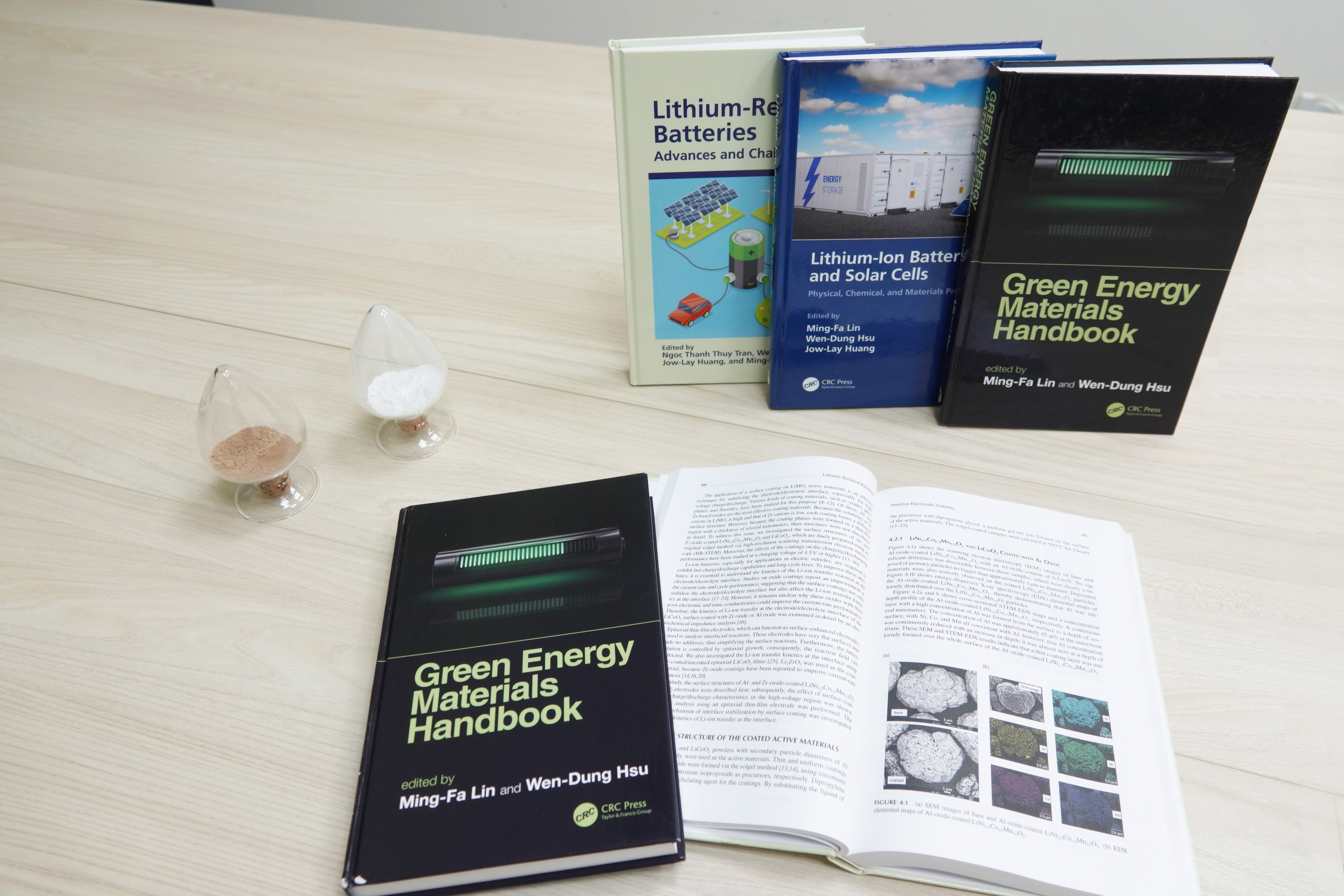NCKU Hi-GEM Published the Green Energy Monographic Series
Written by Lin Yun-Mao, Image credit to News Center.
NCKU's Hierarchical Green-Energy Materials Research Center (Hi-GEM) was established in 2018 with the ambition of becoming the globally visible and distinctive green energy R&D settlement in southern Taiwan, and contributing to Taiwan's "key green energy materials." The research center’s major aims are to study and promote green energy materials, and to develop energy storage and conversion methods for solid-state batteries, secondary batteries, supercapacitors, solar cells, fuel cells, and integrated energy systems. Since 2019, Hi-GEM has published three volumes in its Green Energy Monograph Series, including Green Energy Materials Handbook, Lithium-Ion Batteries and Solar Cells: Physical, Chemical, and Materials Properties, and Lithium-Related Batteries: Advances and Challenges. The Monograph Series was published by one of the world's leading academic publisher, CRC Press, and written in English for global marketing. Consequently, NCKU's reputation in academic research and technological innovation is enhanced internationally.

Huang, Jow-Lay, the Hi-GEM director, led the members in publishing three monographs on green energy.
"Books can be passed on forever." said Huang, Jow-Lay, the director of Hi-GEM. Previously, research papers were unintegrated and unsystematized, so readers had to hunt about for the information they needed. As a result, Hi-GEM began publishing its Green Energy Monograph Series in 2019 to systematically and thematically assemble research gems, in the hope of serving as both a textbook and a reference book. As part of the compilation of the monographs, the crew had many chances to interact with international experts, significantly enhancing NCKU and Taiwan's international influence.
Green Energy Materials Handbook, published in 2019, provides an overview of the development of reliable, low-cost, high-performance, and long-lasting green energy materials. It covers mainstream computational models, experimental studies, and papers on the measurements, experimental fabrication, and key technologies of green energy materials, as well as the latest advances in the field, providing the reader with complete experimental measurements, computational results, and potential applications.

By marketing the monographs worldwide, NCKU was able to expand its international influence in academic research and technological innovation.
Lithium-ion Batteries and Solar Cells: Physical, Chemical, and Materials Properties, the second volume of this monograph series, focuses on lithium-ion batteries and solar energy and explores the physical, chemical, and material properties of these batteries and cells. A further theme of the book is to explore the different and unique experimental methods and technologies that can be used to test cathodes, anodes, solid-state electrolytes, and liquid electrolytes of lithium-ion batteries, to improve the performance of solar cells and batteries, and to analyze unsolved problems and their commercial application.
To respond to global trends and developments in electric vehicles, the center published Lithium-Related Batteries: Advances and Challenges in 2022, due to lithium batteries playing an important role in electric vehicles. It describes the invention and challenges of lithium-ion batteries, as well as the materials and characteristics of lithium-ion batteries, sodium-ion batteries, lithium-sulfur batteries, aluminum-ion batteries, and lithium iron phosphate batteries. Further, it looks at core issues like stability and efficiency, as well as ways to improve battery performance.
Provider:
News Center
Date:
2022-06-07